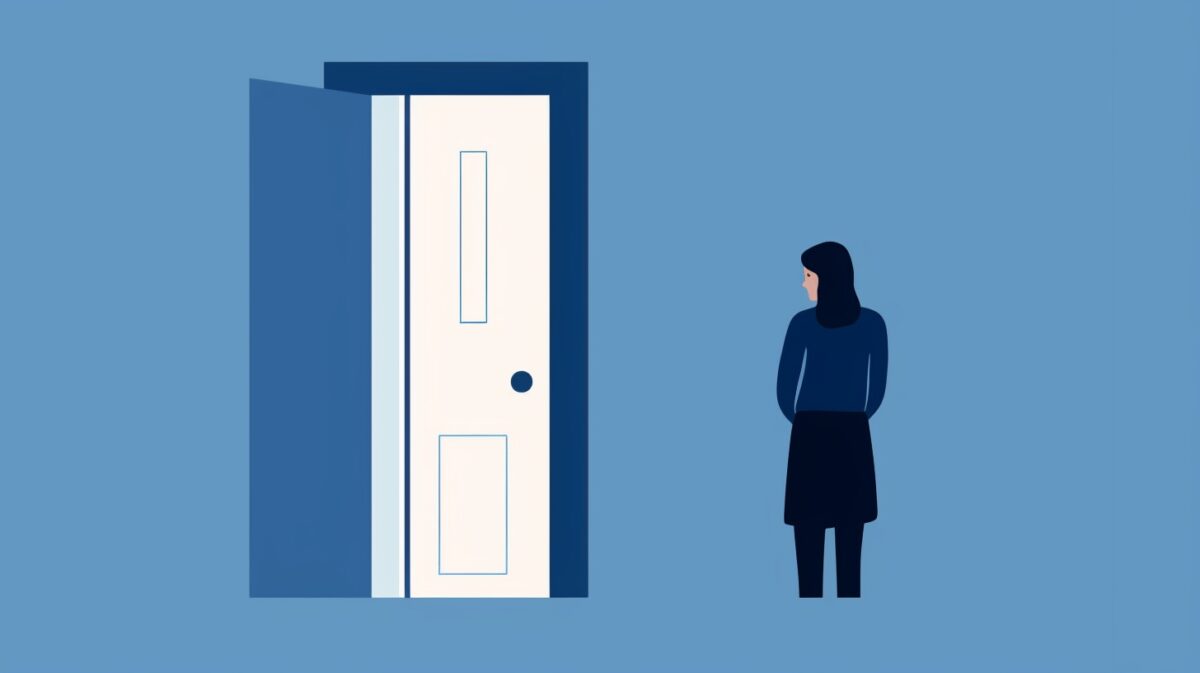Our new ‘Sessions‘ series explores sessions at the Clinical Psychologist’s Office
The room is softly lit and designed to feel welcoming. There’s a comfortable couch for clients and a chair opposite for the psychologist. Some serene paintings adorn the walls, and there are a few leafy plants, providing a touch of nature.
Dr. Greene: Hello, Sue. It’s nice to meet you. How can I help you today?
Sue: Hi, Dr. Greene. I’m… well, I’m not sure how to put it. I keep having these recurrent thoughts and I can’t shake them off. And I keep checking things. But I thought it might be a memory issue or something, because I can’t seem to remember if I’ve done certain things or not.
Dr. Greene: That sounds distressing. Can you provide a recent example of what you’ve experienced?
Sue: Sure. Like this morning, I was trying to leave for work, but I kept going back to check if I’d locked the door. Even though I knew I had, I had to go back and check multiple times. And the thoughts… they just won’t go away. I feel like if I don’t check, something terrible will happen.
Dr. Greene: I see. And when you get these recurring thoughts or feelings, do they often center around themes of doubt or uncertainty?
Sue: Yeah, exactly. It’s like I can’t be sure about anything anymore. Even if I just did something, I doubt myself almost immediately after.
Dr. Greene: Based on what you’re describing, it sounds like these are not just memory issues, but possibly symptoms of Obsessive-Compulsive Disorder, or OCD.
Sue: (Eyes widening) OCD? But I don’t have any of those classic symptoms, like needing things to be symmetrical or clean. My house is a mess most of the time! I thought people with OCD were like… neat freaks.
Dr. Greene: It’s a common misconception. While some people with OCD have compulsions related to order and cleanliness, OCD has many forms. At its core, it’s characterized by persistent, unwanted thoughts (obsessions) and actions or rituals (compulsions) you feel compelled to perform to alleviate the distress from these thoughts.
Sue: So, you’re saying it’s not a memory issue?
Dr. Greene: It doesn’t seem to be primarily about memory. It’s more about the anxiety and doubt that compels you to repeatedly check things, even if you’ve already verified them. It’s the anxiety driving the behavior, not a failure of memory.
Sue: (Pausing) I can’t believe it… I just thought I was forgetful or maybe just stressed out. OCD never crossed my mind.
Dr. Greene: It’s okay, Sue. Many people don’t recognize the symptoms because they’re only familiar with a narrow portrayal of the disorder. The important thing is that we’ve identified what might be going on, and we can work together to address it.
Sue: It’s a lot to take in. But I guess I’m relieved to have a starting point. I want to get better.
Dr. Greene: And I’m here to support you through this journey, Sue. We’ll explore Cognitive Behavioral Therapy and other approaches that have shown to be effective in treating OCD. You’re not alone in this.
The session depicted above is a fictional representation and does not depict real individuals or actual events. It is constructed based on general principles and experiences within the field of clinical psychology but is not representative of any specific real-life scenario or therapeutic relationship. Anyone seeking psychological advice or therapy should consult with a licensed professional who can provide guidance tailored to their unique situation.
